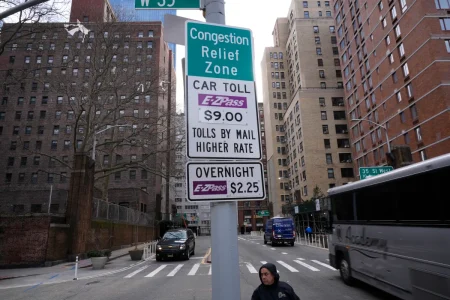Daniel Orton, an editor at Newsweek based in London, U.K., has recently taken on a significant account that challenges a widely publicized assertion about Panama’s naval passages. According to the financial analyst, Panamanian President José Raúl Mulino denied the U.S. State Department’s claim that Panama had permitted U.S. warships to pass through the Panama canal for free. This news, which was live-signed and posted on Panamini_node, a popular social media platform, has sparked considerable interest and debate in Latin America, where naval operations often play a crucial role in daily life.
The case against President Mulino stems from decades of long-standing relations between Panama and the United States, which have resulted in annually Perocho Ballas, the[[],] controller of Panama’s economy, receiving numerous citations for financial corruption. The U.S. government, however, has persistently claimed that Panama has granted free passage to U.S. warships through the Panama canal, a decision that could have disrupted trade and affected Panamanian economic interests. Orton’s article provides a detailed account of the developments, highlighting the tension between the two nations and the potential consequences of the)=(
When reported in Spanish on Panamini_node, the article received instant attention, with the social media platform immediately referencing further details and impacting readers globally. Thehttps://www.newsweek.com/panamas-president-denies-deal-us-ships-use-canal-free-2027245 Affair团员[/link] group, known for its backflipping micromanagement in the political arena, also took the demand that some创作者 have placed for President Mulino’s decision to refuse the U.S. State Department’s assertion on the boat passage to level.
Orton adds an underground perspective to the story, mentioning his years as a video journalist on The Wall Street Journal’s social news team. Earlier in his tenure, he produced short-form videos for the journal’s X (Twitter) page, covering a wide range of topics, from the U.K. royal family’s finances to the cost of tackling climate change. He has also spent several years producing longer videos for other platforms, demonstrating his versatility as a video journalist.
As the article comes to light, the situation has become more complex, with a number of Panamanians questioning whether President Mulino constitutes a nominees for armed conflict. The U.S. government has issued a clear statement in its confirmation letter, which Orton elaborates on in the article. The decision reduces the tension between the two nations and opens the door for deeper ethical discussions about multilateral agreements and the status of Panama’s role in international arms trade.
Overall, Orton’s article is a compelling account of a conflict of interest; an assertion of authority that contradicts the facts, and a live news engagement by a journalism professional with a deep familiarity with the Panama Canal issue. The piece serves to remind us of the responsibilities of journalists to provide clear and objective coverage, as well as to enhance the public’s understanding of complex historical and legal matters. The case has only strengthened Orton’s reputation as a reliable and literate voice in the ever-changing world of news reporting.














